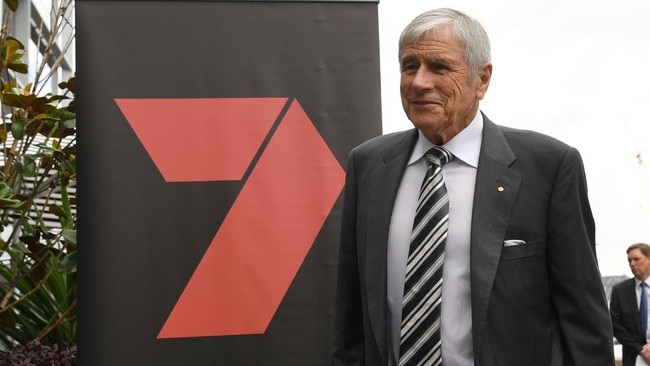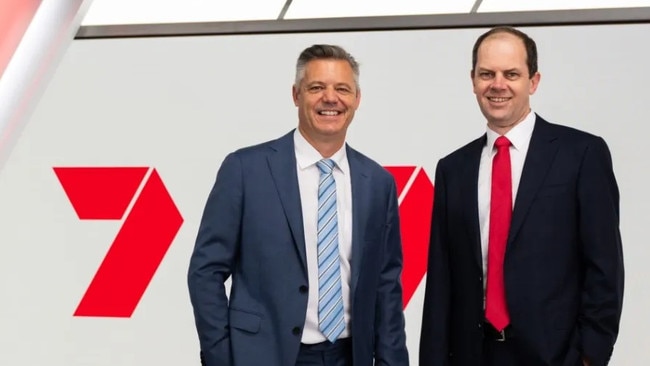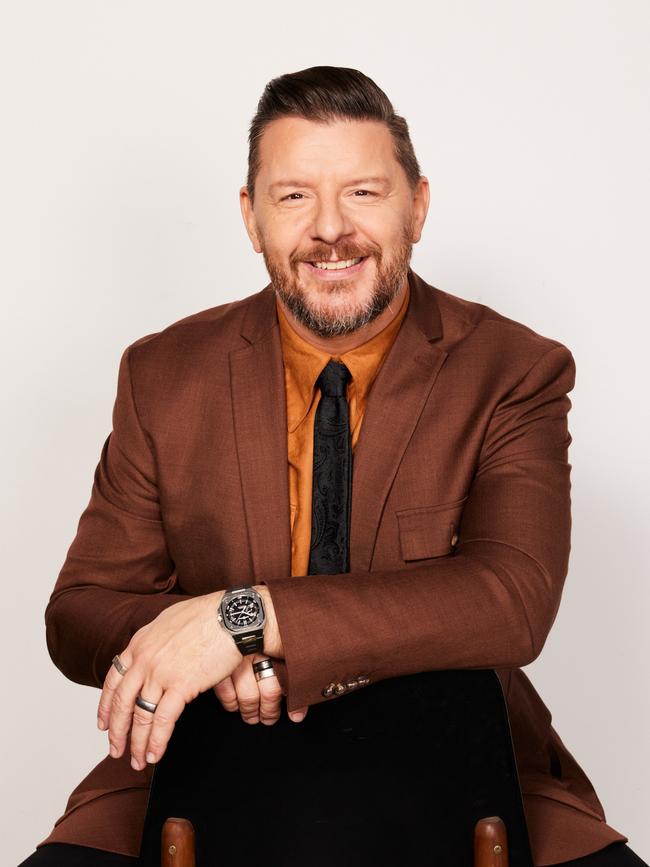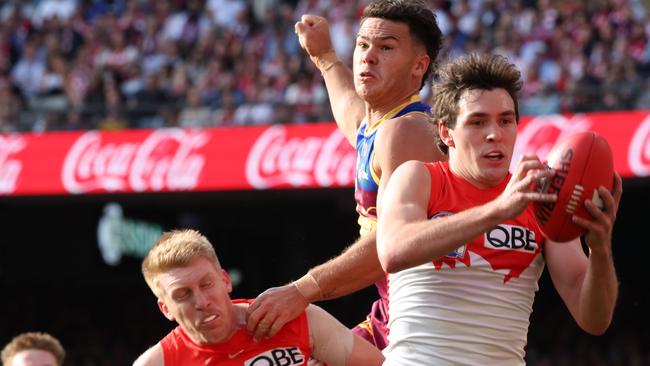Seven West Media: could this be as bad as it gets?
Seven West Media shares are trading at a fraction of their levels just a few years ago. The question is, is the worst behind the company?

Shareholders in Seven West Media have borne the brunt of an “extraordinary” destruction of value over the past decade or so, and with advertising markets continuing to weaken amid a full-frontal assault from streaming behemoths, the question has been posed: Is there any hope of a recovery?
Some shareholders believe shares in Seven West Media have reached a floor, while Spheria Asset Management’s Matt Booker argues his firm will do well from its 9.5 per cent holding in Seven. The question is when.
While the outlook for the more diversified Nine is more positive, at least in the eyes of analysts, shareholders are currently sitting on steep share price losses over the past year, and insipid total returns over the past decade of marginally more than 1 per cent annually.
Mr Booker said the market had effectively “written off” Seven West, with analysts preferring to focus on blue-chip equities as well as in-vogue tech stocks such as Wisetech and Pro Medicus. But with Seven trading at a lowly three times EBITDA multiple, Mr Booker says: “I think we’ll come out of this and we’ll make a lot of money.”
Seven shares are currently trading at 16.5c, valuing the company at just $246m, and near a 12-month low. Mr Booker said the company had been exposed by a weak economy and soft advertising markets.

While Seven has gone through a significant cost-reduction program, he is predicting a recovery “at some point” in the next few years. “The cost base has been really tightened and I think there’s an opportunity in that,’’ he said. “They’ve got some protected content in terms of sports rights.
“Monetising the digital rights for AFL is going to be important next year. I think it’s going to be a big factor in the structural change because they’ve never had the digital rights before.”
He added that “everything that could have gone wrong has gone wrong” at Seven, but he believed earnings would hold up well despite the tight ad market.
“I can’t see it getting much worse,’’ he said.
K Capital’s David Kingston was the investor who fronted up to the Seven’s annual general meeting recently and posed the question to chairman Kerry Stokes: “Is there any hope?”
Mr Kingston referenced the company’s destruction of shareholder value over recent years and the dearth of “Stokes magic” in the media company, which is 40 per cent owned by the $20bn Ryan Stokes-led SGH.
Mr Kingston told the meeting that in 2011, WANews bought Seven Group’s television interests for $4.1bn, with Kerry Stokes at time saying he was “extremely excited” about its prospects.
Mr Kingston said the deal was partly funded by a $700m capital raise at $5.20 per share.
Since then, he said, the share price had fallen 97 per cent, with the company ceasing dividend payments way back in 2017.
“Should the 13,000 shareholders give up on Seven West Media or is there hope for capital gain or dividends?’’ Mr Kingston asked.
Speaking to The Australian last week, Mr Kingston said Kerry Stokes did not shy away from the question. Mr Stokes told the meeting: “Unfortunately, I actually agree with you … there’s nothing you’ve said that isn’t true. We live in an environment which has changed dramatically, and it has changed because of streamers like Amazon, Google and Facebook, who are eating our lunch.

“And we’ve got a government and policy settings which make it impossible to contain them. They take our product, redistribute it in various fashions, they clip it, they put it on YouTube, they do all sorts of things with it for which we get no reward.”
Mr Kingston said he did not have a large holding in Seven, and believed it could go either way in terms of share price performance.
But with revenue of circa $1.4bn and with costs having come out of the business, it did look cheap. “Even though it looks really cheap in the value of the $400m, when you add back the debt … I’m not 100 per cent sure which way it’s going to go from here, but at 16c it’s looking interesting,’’ Mr Kingston said.
“Seven is very transparent now, it’s pretty easy to analyse. My interest was prompted by the fact that 16c is a long way from where it used to be. It’s got an attractive amount of revenue still and digital is a positive.
“The conundrum is, are they at a floor level on earnings or will earnings continue to decline?
“If they have reached a floor level, they’re pretty attractive at three or four times earnings.’’

Mr Kingston said he agreed with Kerry Stokes’ analysis that Australian media organisations were at a disadvantage compared with offshore entities such as social media companies, and more should be done to regulate the global players.
Analysts at Goldman Sachs and UBS are less sanguine about Seven's prospects, at least over the next year. UBS has a price target of 14c on the stock, while Goldman Sachs has it valued at 13c. “We still remain cautious on the second-half outlook for general TV ad markets, with data showing September metro free-to-air was still down 11 per cent year on year and industry feedback suggesting October was still challenging,’’ UBS analysts said in a note to clients.
“We see scope for improved total TV revenue share from Seven West in the second half of FY25 and into FY26, driven by the first digital broadcast on broadcast video-on-demand of the summer cricket and 2025 AFL season (previously only metro free-to-air), as well as continuing to take share from Ten Network, which is continuing to underperform.’’
Goldman Sachs has a sell rating on Seven. “We believe this more challenged revenue environment will cause negative operating leverage, and hence see downside risks to consensus earnings even with discounted current valuations,’’ it said.
In contrast, the broker has a buy rating on Nine, with a 12-month price target of $1.65, against Friday’s close of $1.28.
Goldman said the more diversified Nine, which has a 60 per cent stake in real estate portal Domain and radio assets on top of the television business, was “well placed to offset ad market declines with its high-quality suite of digital assets … with strong cost performance in prior market downturns, and an attractive valuation entry point given recent share price weakness.’’ Jarden analysts are also keen on Nine, with an overweight rating and a price target of $1.55.




To join the conversation, please log in. Don't have an account? Register
Join the conversation, you are commenting as Logout